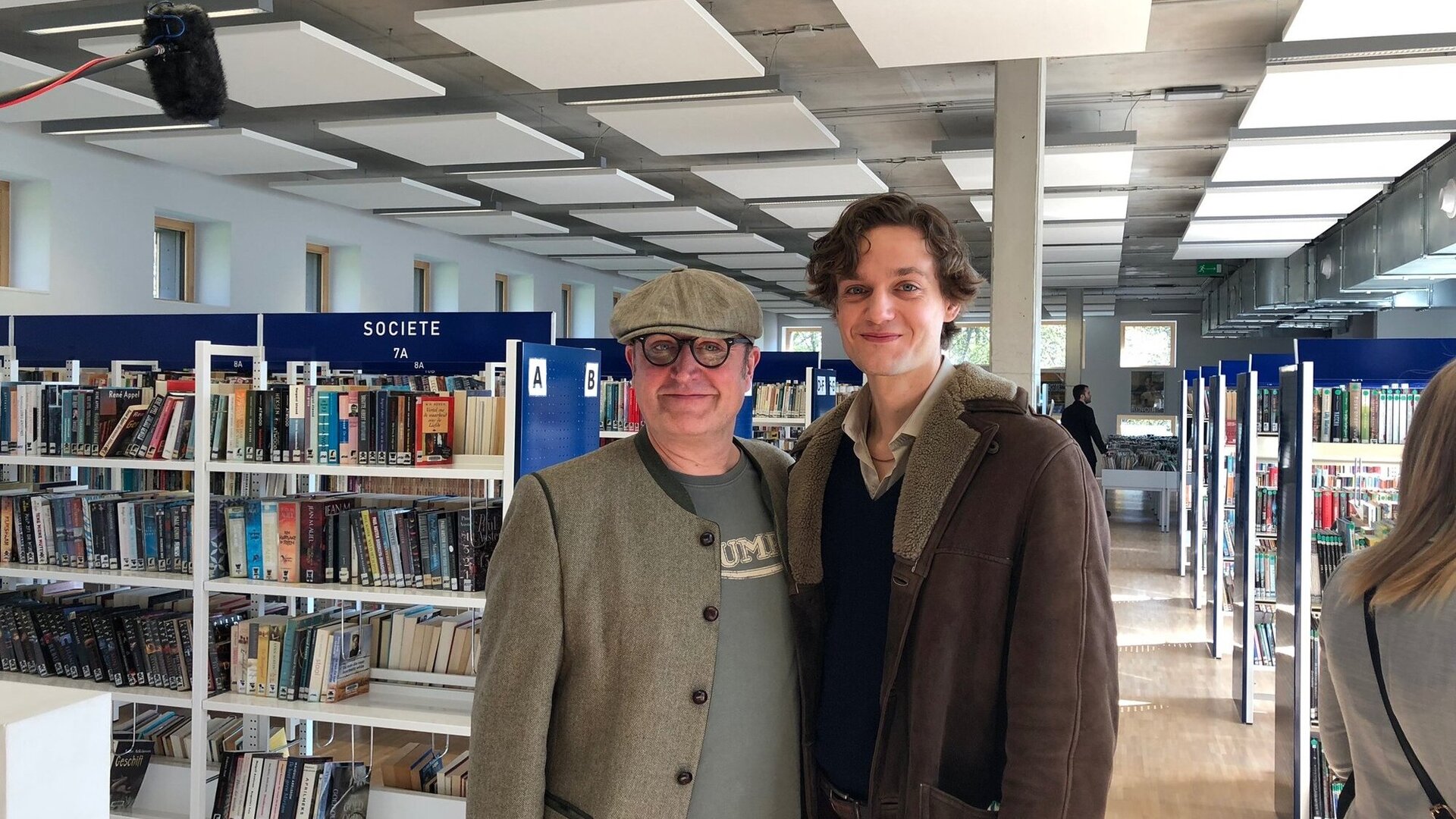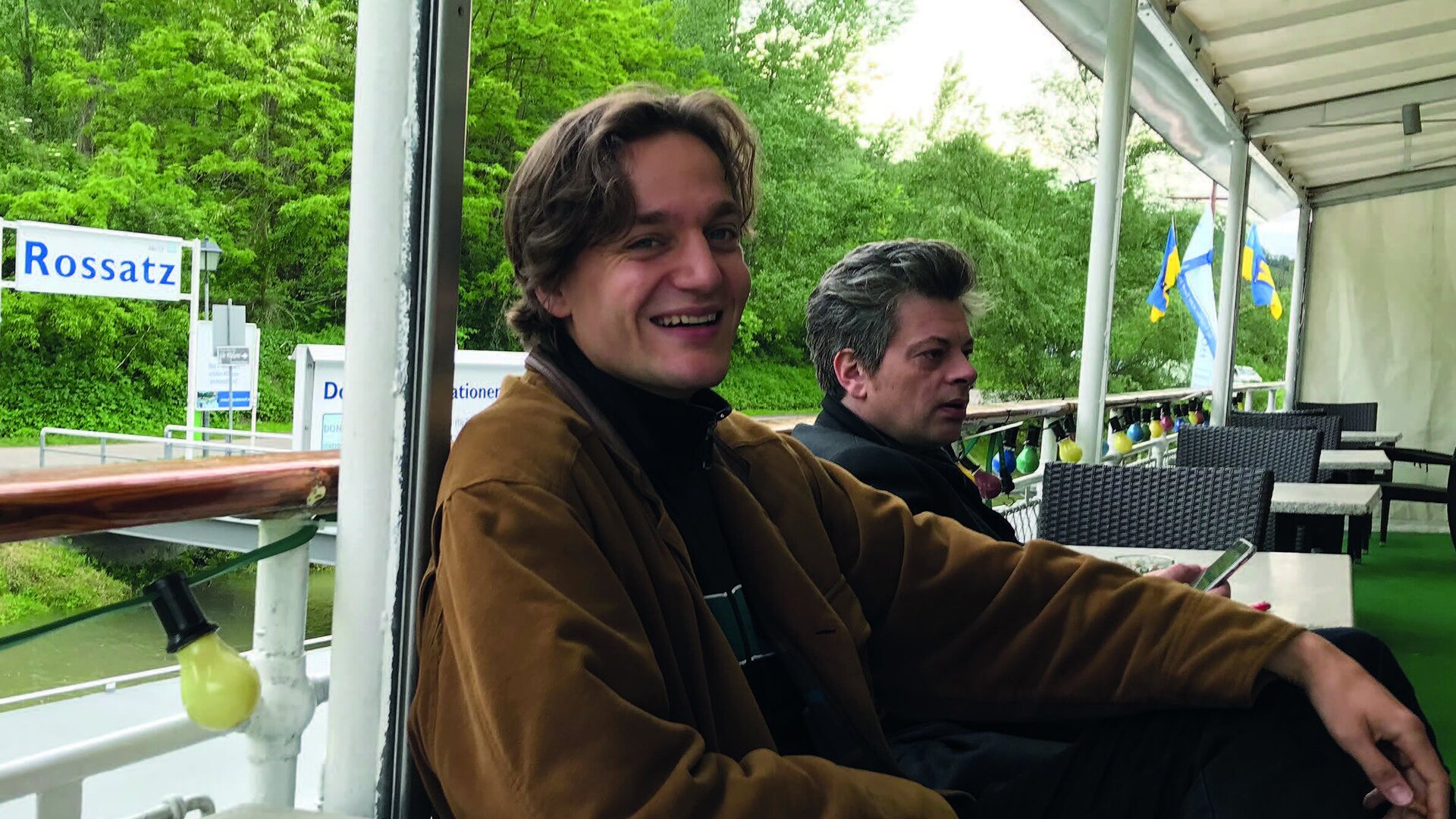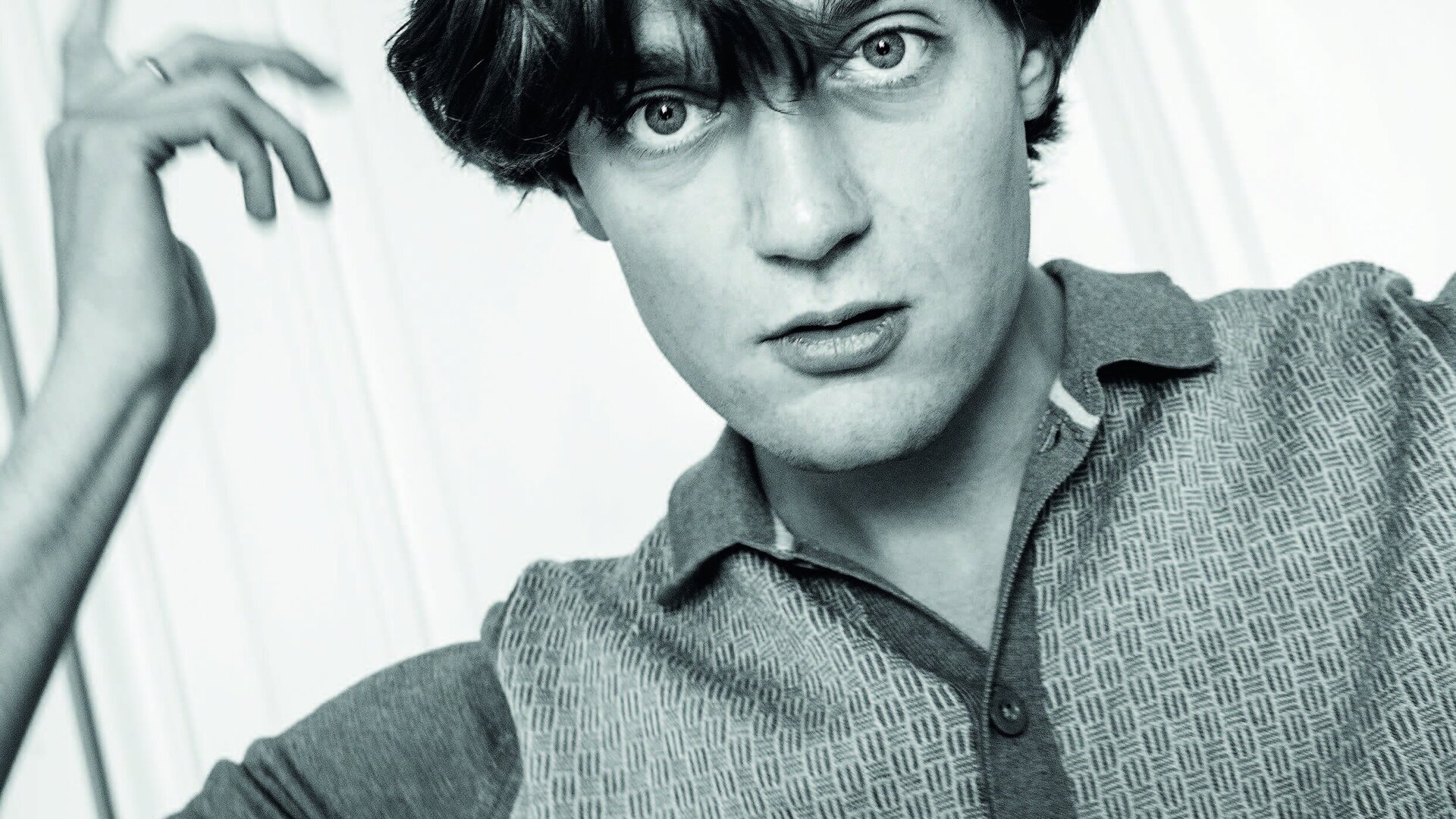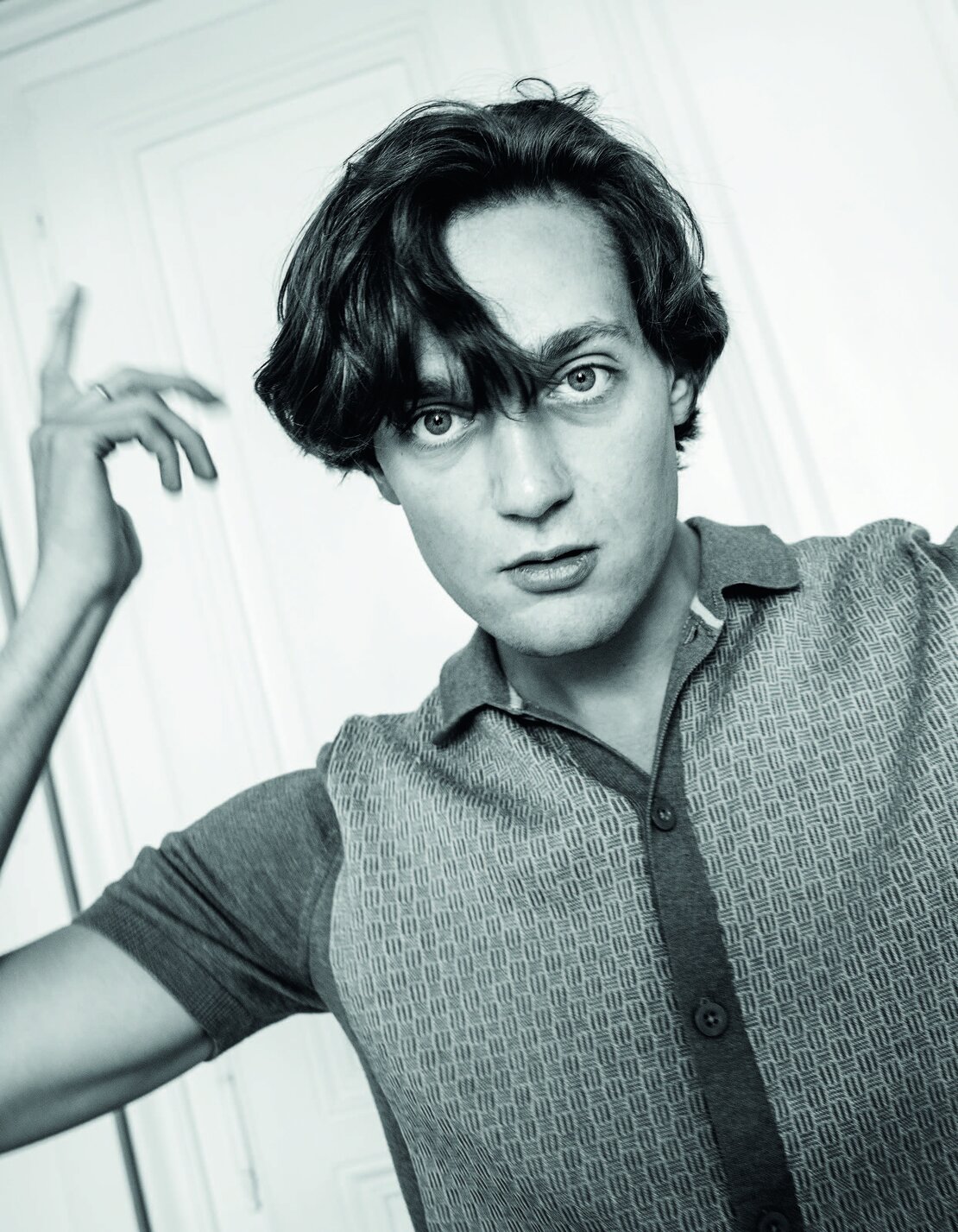His appearance in "Planet Ottakring" was a short one, the role didn't even have a name, "Skater" is on the cast list - and hardly anyone has seen him. The ambitiously made film was not really a big success in 2015 with about 10.000 visitors. Since then, four years have passed, and on his showreel Lucas Englander can only be seen in the English and French versions - he speaks both languages with almost no accent. It is hard to believe that just a few years ago he was booked for a mini appearance in an Austrian feature film.
The Max Reinhardt Seminar in Vienna is to blame for this, or rather the entrance examination, which, as he tells us, went down the drain. He then tried it in New York, at the renowned Stella Adler Acting School, whose most famous graduates were Robert de Niro and Marlon Brando. Although he dropped out after one year, a return to Vienna was not an option. He first tried his luck in London at the theatre, then Berlin, still searching, and finally London again, where a great opportunity opened up for him. An agent told him he had the perfect role for him, and now he just has to get it. And Lucas Englander came, saw and won, has lived in London ever since and is currently shooting for a big Netflix production.
For "Valses de Vienne" a movie by the French production company Thelma- Film/Paris, whose boss Cristine Gozlan was still working as line producer on Hanekes "Piano Player", Englander returned to Vienna, to play a cunning, a “Strizzi” as he would be called in Vienna, who ends up in the Danube. The French stars, Karin Viard and Benjamin Biolay, let those scenes be performed by stand-ins, Lucas Englander himself insisted to get into the water - although the "ice saints" turned May into a late winter. Englander played these scenes in the Kuchelau harbor with a lot of energy but also with great joy and kept going until the end. Great appreciation was shown by the team around director Marc Fitoussi and DoP Antoine Roch, for staying many hours in the freezing cold Danube water. Although it was not only his performance that made him that popular on set, he simply doesn't know any airs and graces.
During the shooting on the former DDSG steamboat "MS Stadt Wien" he personally brought warm tea to the extras, they had to represent cruise ship guests and stand around in the cold for hours. He would easily pass as a "star", because the negotiations with Netflix to coordinate the shooting in Vienna with the shooting for the new series already resembled the scheduling problems that well booked actors are exposed to. Quite a few casting directors predict a great international career for the exiled Viennese. When you watch him work, when you see him on the screen and when you talk to him, you can guess why. He has the talent, the ability and the courage, and as the wonderful Verena Altenberger once said, luck always hits the ones prepared. And Lucas Englander is prepared.
“You’re living in London right now?”
“I do.”
“Why? Because of career, future, love?”
“For the first time in my life, I moved not for love, but for career. I started shooting internationally about a year and a half ago. In London, opportunities arose which I could not have seized from Austria or Germany in any way. I went to London last summer for meetings with casts and agents, and an agent gave me a script and said, now or never. Well, it really did work out, and I've been living in London ever since.”
“If I look up your name on the internet, one could say you are not as well known in Austria as Tobias Moretti, for example.
“(laughs)”
“You’re laughing, but is it because you were looking for the international route right away?”
“The thing is, I wanted to go the international route immediately, but it was more difficult than I thought. At first, the only thing I could imagine was going to Germany, because the German film industry is much more connected to the international area. When my interest in the profession of an actor got bigger at the age of 18 or 19, I went to New York and studied acting with Stella Alder. After one year I dropped out of my studies, moved to London, played at the theatre and returned to Vienna afterwards. This means I never even tried to gain a foothold in Austria, I was an extra before I went to New York, but I never really worked in Vienna or started my career there. I'd say I was afraid of it, and now I'm happy to be able to do it.”
“Didn't your mother warn you? Your father is an entrepreneur and your mother...”
“My mother never warned me at all. When I told her, I wanted to be an actor, she said she knew that anyway. My uncle warned me, but I wouldn't listen to my uncle.”
“Your mother was the editor of one of the "hottest films", "Jedermanns Fest", which nearly lead a production company to go bankrupt, so she knows exactly what you got yourself into.”
“Absolutely. My mother, who was born in the Czech Republic, supported me ever since I was a child. In Czech there is the phrase "Do toho". That means, “gemma”, let's go. That's how she raised me.”
“You mean Cowardice is never an option?”
“Yes, never be afraid of a fight.”
“When I was talking about you with casting directors, they all say that you have to watch out for Lucas Englander, he's on the verge of a very big career. Is that how you see it as well?”
“I'm very touched that they're saying this, and let’s put it like this, everything that happens, happens, and I'm going to do my best.”
“You are currently shooting for a Netflix series, you probably won't be able to tell us something about it?”
“Unfortunately, not yet.”
“But it's going to be a big thing?”
“Of course, and it's very nice to be involved in such a big thing. Unfortunately, or maybe fortunately for me, I'm someone who doesn't realize these things right away. That's why it doesn't make me feel like I'm in the middle of something big right now. I'm glad that there are so many people who like it, who enjoy it. I’m realizing now, It's not about me.”
“I think it’s very remarkable, you have been living abroad for some time, but your inner Viennese has not been lost. I’m talking about the good Viennese things like the humour, the dialect, which is more binding than the Berlin dialect for example. You seem to have the tendency to wanting to live well, but without being a grumbler, a nagger. You say you’re happy that you’re allowed to do this, and you make it sound honest.”
“You just answered your own question.”
“This happens all the time. Could you try to give me an additional answer...?”
“We all live life, and life is individual. If you have empathy for the individual, you may also develop empathy for yourself. And if you develop empathy for yourself, you no longer have to feel that your ego is more important than who you really are. And then you just exist, there's nothing you can do about it. I can only try to become better in the things that still fail me or let my ego get through, otherwise I'm simply there. I hope that answers the question.”
“Yes of course, completely. Do you actually miss Vienna sometimes? What would have been different if you had started as Eleve at the Burgtheater, for example?”
“One of the reasons I left Vienna is because I didn't like the intellectual theatre culture that ruled at that time, because I couldn't associate with it, because it didn't touch me. Now, after I’ve been away for so long, I see everything anew. And I think that now I've reached a point in my life where it's about coming to terms with various things that I didn't like at that time. Do I miss Vienna? Vienna is like a new city for me, which I get to know because I am allowed to shoot here. All the problems I had in Vienna, the thoughts, the feelings, my youth, that's all in the past. Everything that I might have missed back then, and everything I loved is gone. I miss people more than the places. I have to take a look what’s Vienna like right now and prevent looking at it with my old eyes.”
“Is theatre an option for you as well?”
“I'd love to do theatre. I'm very lucky that I'm allowed to make films at the moment, that I can be part of series that are made by people who can teach me a lot. And I'm young, so I have a lot to learn. I'm afraid of working at the theatre, because then I’d have to spend three months with people who don't make me happy. I am picky, but I am starting to learn how to work with people with whom I really want to work with. Stephen Daldry, for example, a British theatre and film director who made the film "Billy Elliot", who is currently going around the world with “The Jungle”, which is about the life of refugees who are stranded in Calais. I hope to meet people like him and make films while I'm there. But whatever happens, happens.”
“That’s interesting, you talk about the theatre and mention a British director and not Mr. Kušej, who will become the director of the Burgtheater this autumn. From this distance, how do you see Vienna, which considers itself the centre of the cultural world? How does one react in London when you say that you are Austrian?”
“It must be said that I am being sold as British. I'm not allowed to talk about the fact that I grew up in Austria, otherwise they immediately look for an accent. Even in Berlin, when you talk to people, you're always told to talk without accent. But I think that the theatre is changing at the moment.”
“That means you feel a bit like Sandra Bullock...”
“I don't know if I'm allowed to compare myself with people like her?”
“Well, she grew up in Germany and still speaks perfect German, almost without an accent. She won’t have said this out loud in Hollywood before she was successful either.”
“Probably not, she certainly spoke perfect American English right from the start and was therefore fully accepted. I had to learn the British accent as fast as I could because I was already taken. This chance to be sold as British won’t happen that often.”
“But it worked out?”
“It seems to be working, and I hope it continues to work out well.”
“Thank you very much for the interview ... and good luck.”



